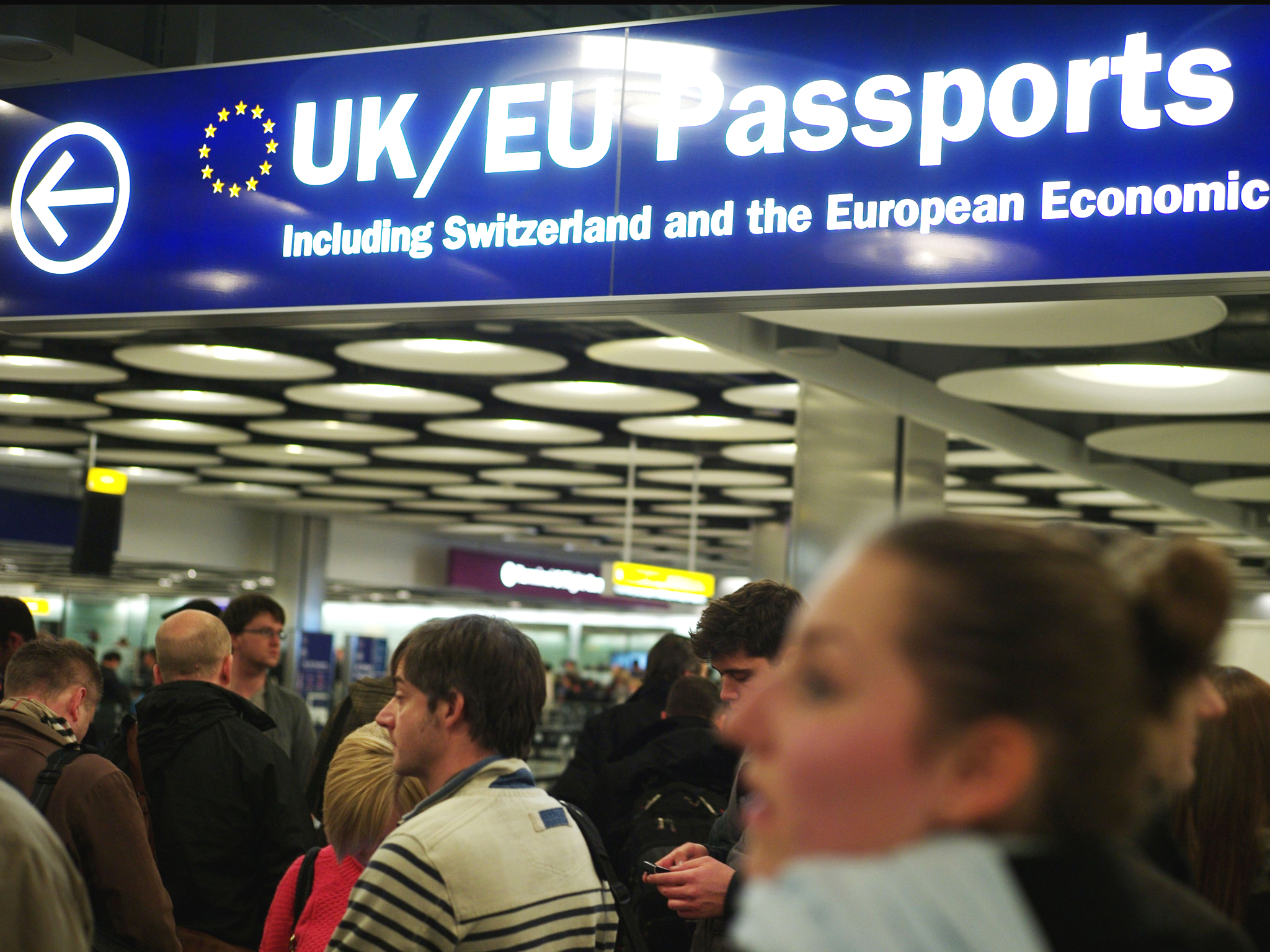Immigration bill: UK terror suspects could be stripped of their citizenship
Plans by Theresa May could see terror suspects faced with being made stateless

The Home Secretary is proposing a change to the Government's Immigration Bill which would allow British terror suspects to be stripped of their citizenship even if it leaves them stateless.
The last minute amendment would permit the removal of a UK passport from any person whose conduct is deemed “seriously prejudicial to the vital interests of the UK”.
It comes as part of an apparent effort to appease Conservative backbenchers calling for tougher measures in the new legislation.
The Home Secretary already has the power to take away British citizenship from those with dual nationality, however, this change would allow her to make people stateless if they have been naturalised as a British citizen.
Human rights campaigners, such as legal charity Reprieve, branded the move an “alarming development” they said would give the Home Secretary power to “tear up people's passports without any need for the kind of due process”.
But immigration Minister Mark Harper said: "Citizenship is a privilege, not a right.
“Those who threaten this country's security put us all at risk. This Government will take all necessary steps to protect the public.
"These proposals will strengthen the Home Secretary's powers to ensure that very dangerous individuals can be excluded if it is in the public interest to do so.“
The amendment comes following one of the high-profile case of Hilal al-Jedda, who fled from Iraq to the UK in 1992 as a refugee from Saddam Hussein's regime. He won asylum and in 2000 was granted British nationality.
However, he returned to Iraq in 2004 where he came under suspicion of involvement in terrorism and in 2007 was stripped of his British nationality.
Al-Jedda, who now lives in Turkey, has since been fighting against the move through a series of legal appeals.
In October last year, a UK Supreme Court ruled that it was illegal to make him stateless, yet despite this ruling, the Home Secretary stripped al-Jedda of his UK citizenship for a second time in December 2013.
The Prime Minister has reportedly been seeking to quell a rebellion by reassuring backbenchers he shares their concerns, but has appealed for them to allow legislation to proceed uninhibited.
Around 70 Conservative backbenchers have signed a tweaked amendment to the legislation, originally tabled by Nigel Mills MP, which calls on the Government to reinstate restrictions on migrants from Romania and Bulgaria working in Britain until the end of 2018.
A further 100 MPs have voiced their support for a move by Tory MP Dominic Raab to completely block foreign criminals appealing against deportation by claiming a right to a ”family life“ in the UK.
Mr Mills, Conservative MP for Amber Valley, attempted to have labour market restrictions for Romanians and Bulgarians extended before they were lifted on 1 January.
Mr Cameron rushed through new measures to ensure EU migrants are unable to claim out-of-work benefits for their first three months in the UK.
However, the MP has lost the significant support of influential backbencher Douglas Carswell MP, who despite having signed the amendment announced on his blog he would no longer vote for it.
Meanwhile, Mr Raab's amendment would see the Home Secretary - rather than the courts - have the final say on whether an offender's family links are strong enough to allow them to avoid deportation.
Foreign criminals who can prove they face the prospect of torture, ill-treatment or death in their home country will still be able to overturn deportation orders under separate human rights measures.
More than 200 foreign criminals successfully challenge deportation on human rights grounds annually, with around 90 per cent relying on the "right to private and family life" set out under Article 8 of the European Convention on Human Rights.
Speaking at Prime Minister's Questions, Mr Cameron signalled he shared backbenchers' frustration with the use of Article 8 and urged them not to delay the passage of the Bill.
He said: "We need to correct - and we will correct in the Immigration Bill - the fact that it is so difficult to deport people who don't have a right to be here and should be facing trial overseas or should be deported overseas but make spurious arguments about the right to a family life.
“It is right that we are changing that. There is nothing anti-European about it. It's a very sensible step that this Government is taking and we should pass the Immigration Bill with all speed.”
Additional reporting by Press Association
Join our commenting forum
Join thought-provoking conversations, follow other Independent readers and see their replies
Comments
Bookmark popover
Removed from bookmarks